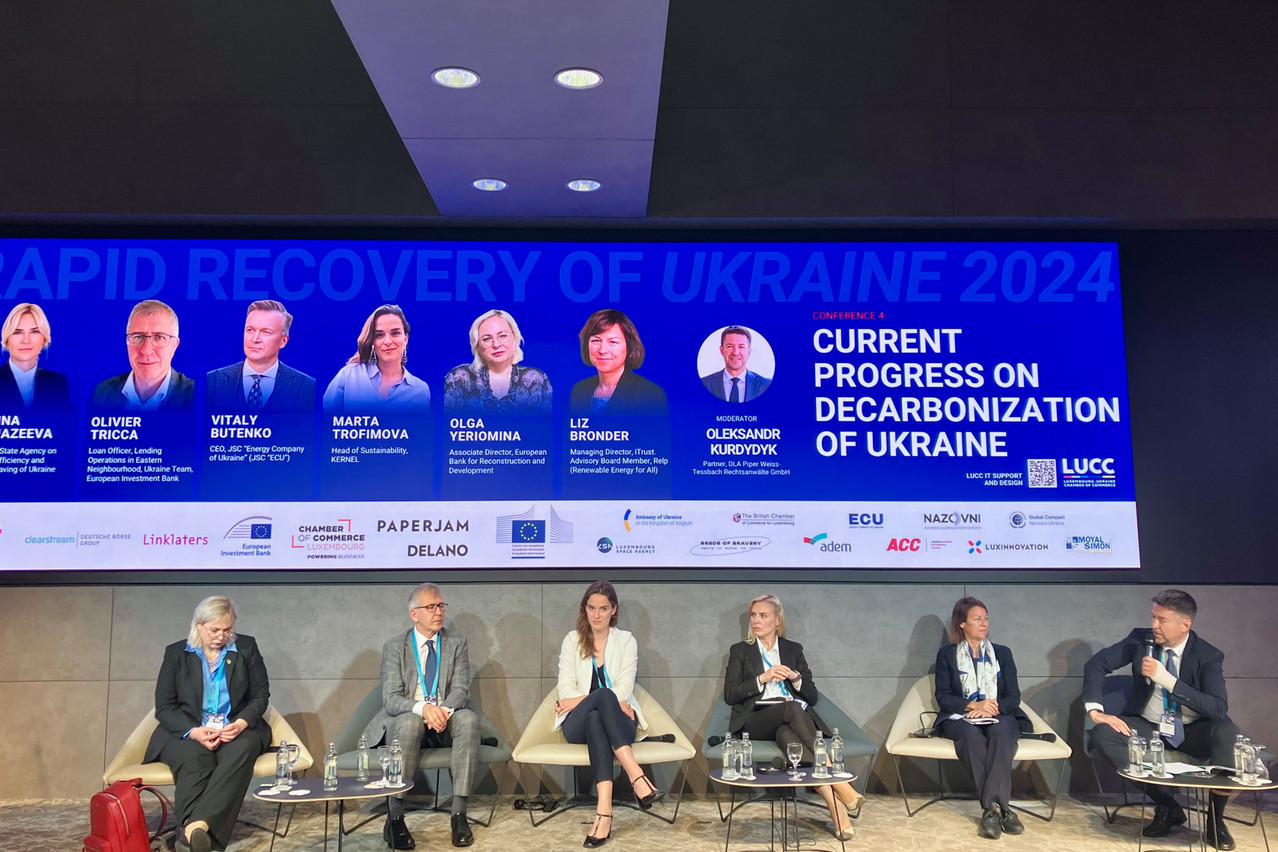Organised by the Luxembourg-Ukraine Chamber of Commerce on 21 May 2024, the second edition of the Rapid Recovery of Ukraine conference brought together experts from the financial, business and political spheres to discuss international financing initiatives, investment opportunities and more. A panel discussion on Ukraine’s decarbonisation featured insights from the head of the country’s energy efficiency agency, Anna Zamazeeva.
During its full-scale invasion, Russia has attacked and destroyed energy facilities and other infrastructure in Ukraine, leading to the need to rebuild--but also providing the opportunity to build back better (and greener). The State Agency on Energy Efficiency and Energy Saving of Ukraine aims to implement policy to ensure the efficient use of fuel and energy resources, energy saving and alternative fuels.
“We are responsible for the effective use of the country’s fuel and energy resources in all spheres of life,” she explained, with a “mission” to implement energy efficiency and decarbonisation in all areas of the economy. As laid out in the , its tasks and goals--by 2030--include reducing primary energy consumption by 22.3%, reducing final energy consumption by 17.1%, reducing CO2 emissions by 65% (compared to 1990) and ensuring that 27% of final energy consumption comes from renewable sources.
Energy-saving potential
Today, said Zamazeeva, the most energy-intensive sector of Ukraine’s economy is industry (responsible for €9.4bn per year), followed by transport (€9bn per year) and households (€3.6bn). “But we have energy-saving potential,” she added.
In industry, for instance, the energy-saving potential comes to roughly 30% (or €2.8bn per year), which brings the expected volume of emissions reduction by 2030 to 12.5m tonnes of CO2. In transportation, energy-saving potential comes to 5-10% (€900m per year) and a reduction of 2.3m tonnes of CO2; in households, the energy-saving potential stands at 50-60% (up to €2.2bn per year) and a reduction of 3.5m tonnes of CO2 emissions.
Zamazeeva argued that to achieve this in the industry sector, €11.9bn of investment would be needed; for the transport sector, €15bn would be needed; and for households, €13.4bn would be needed.
In the EU, which aims to reduce its greenhouse gas emissions by 55% by 2030, the that some €700bn of investment would be needed per year in order to meet the objectives of the European Green Deal.
Ukraine’s state fund for decarbonisation
So how can this be financed?
Voted through Ukraine’s parliament and , the State Fund for Decarbonisation and Energy Efficient Transformation--established as a special fund in the state budget--will provide a permanent source of financing for energy efficiency, renewable energy sources and decarbonisation programmes, said Zamazeeva. It makes the SAEE and its tools ideal partners for investors and cooperation.
It also puts in place the “polluter pays” principle, which means that taxes on CO2 emissions can be directed to energy efficiency measures and decarbonisation of the economy. Examples of projects, she noted, can include installing solar heat and water supply systems, the thermal modernisation of buildings, transitioning infrastructure facilities to use heat pumps or upgrading public transport. The fund also aims to attract international loans and grants to implement projects, as well as ensure the repayment of foreign investments and financial liabilities.
Separately, Zamazeeva also mentioned the plan to set up an international green investment fund as a specialised investment fund (Sicav) in Luxembourg, whose aim will be to reduce energy consumption, promote sustainability and expand access to long-term finance for energy-efficient projects in Ukraine. The investing strategy consists of raising €6bn over 7-10 years, she explained.
